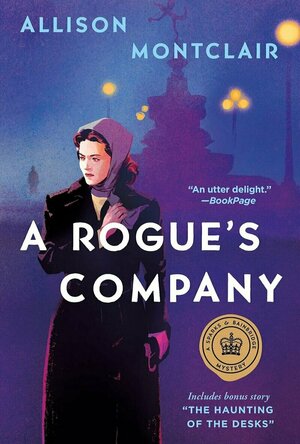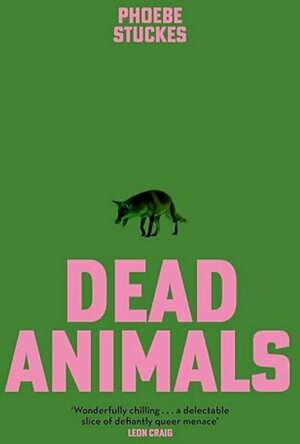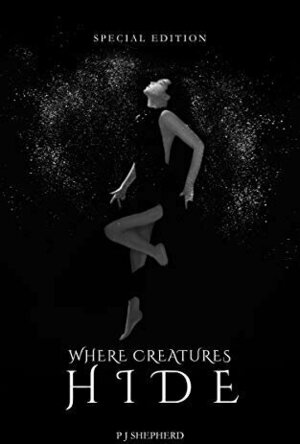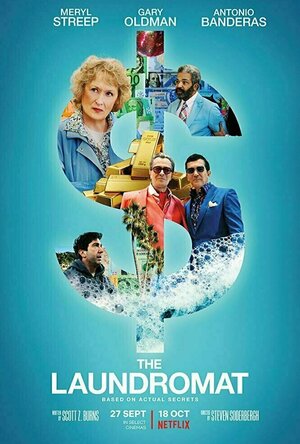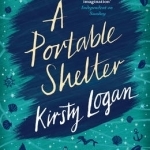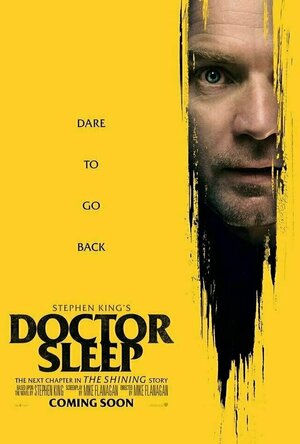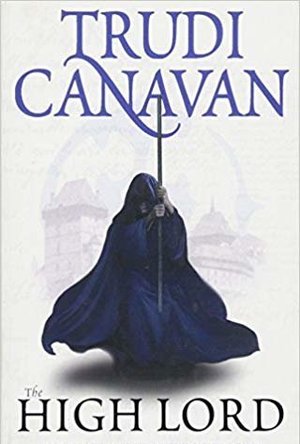Search
Search results
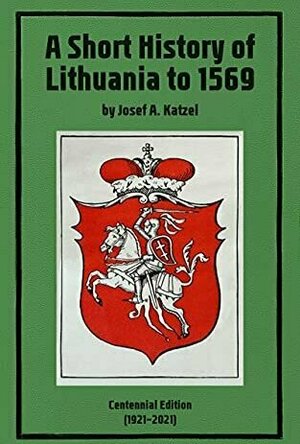
A Short History of Lithuania to 1569
Book
Why did Lithuania’s dictator in the 1920s (the pro-Nazi Augustinas Voldemaras, who aligned himself...
history bookbuzz
Mark @ Carstairs Considers (2482 KP) rated A Rogue’s Company in Books
Jun 7, 2025 (Updated Jun 7, 2025)
Good Novel, but Not Good Mystery
It’s August 1946, and Lord Bainbridge has returned from his latest trip to Africa. That means that Gwen’s life has once again turned complicated as she attempts to wrestle her life back from her father-in-law. Lord Bainbridge is insisting that Gwen’s six-year-old son is ready to attend the boarding school that the Bainbridge men attend, and she doesn’t have custody to stop him. Can she figure out how to get control of her life back?
Those following this series will be absolutely hooked by this storyline. I was anxious to see how it was going to play out. But this is a mystery series, and the mystery was lacking, starting too late with some key elements feeling forced or rushed. Don’t worry, Gwen’s business partner, Iris Sparks, gets plenty of page time and some nice development, and all the usual supporting players are here. We also get the usual banter that makes me laugh. The paperback I bought recently contains a bonus short story that I feel like was pieced together from a subplot in the previous book, but I don’t remember for sure. While the mystery may have been weak, fans will still be glad they picked up this book. I’ll be continuing on with the series soon.
Those following this series will be absolutely hooked by this storyline. I was anxious to see how it was going to play out. But this is a mystery series, and the mystery was lacking, starting too late with some key elements feeling forced or rushed. Don’t worry, Gwen’s business partner, Iris Sparks, gets plenty of page time and some nice development, and all the usual supporting players are here. We also get the usual banter that makes me laugh. The paperback I bought recently contains a bonus short story that I feel like was pieced together from a subplot in the previous book, but I don’t remember for sure. While the mystery may have been weak, fans will still be glad they picked up this book. I’ll be continuing on with the series soon.
ClareR (6067 KP) rated Dead Animals in Books
May 26, 2024
Dead Animals by Phoebe Stuckes tells of an unnamed young woman who wakes up the morning after a party, covered in bruises. Over a period of time, she realises that she was sexually assaulted. Whilst trying to deal with the repercussions of this, we learn that she’s a zero hours waitress in an upmarket restaurant, specialising in offal - and she’s a vegetarian. She’s bullied because she doesn’t eat meat, and is tricked into eating it on a couple of occasions (they’re really unpleasant people).
She lives in a tiny flat that appears to be plagued with mould that only worsens after the attack. Whether this is real mould or a physical manifestation of her inner turmoil and distress is uncertain, but when she meets Hélène, a fellow sufferer of her attacker, she takes her up on the offer of moving in with her.
Hélène seems perfect at first, but the main character takes her unease and weird occurrences with her to the new flat. Hélène comes across as manipulative and controlling. In fact there’s a feel of the main character having no control of her own life at any point in this story - right up to the devastating end.
This was a really tense, creepy audiobook, read so well by Anna Burnett - her narration increased the feeling of unease!
A short but really hard-hitting listen.
She lives in a tiny flat that appears to be plagued with mould that only worsens after the attack. Whether this is real mould or a physical manifestation of her inner turmoil and distress is uncertain, but when she meets Hélène, a fellow sufferer of her attacker, she takes her up on the offer of moving in with her.
Hélène seems perfect at first, but the main character takes her unease and weird occurrences with her to the new flat. Hélène comes across as manipulative and controlling. In fact there’s a feel of the main character having no control of her own life at any point in this story - right up to the devastating end.
This was a really tense, creepy audiobook, read so well by Anna Burnett - her narration increased the feeling of unease!
A short but really hard-hitting listen.
Becs (244 KP) rated Where Creatures Hide in Books
Jan 2, 2020
<a href="https://bookingwayreads.wordpress.com">Blog</a>; | <a href="https://https://www.instagram.com/ernest.bookingway/">Bookstagram</a>; | <a href="https://https://twitter.com/bookingwayreads">Twitter</a>;
My rating: ?????
Review:
I was sent Where Rogues Hide to read and review for my honest opinion but I only got about 20 pages in when I realized that I needed to read Where Creatures Hide (which is book 1 of the series) and Where Puppets Hide (book 2 of the series). So I rented them off of Amazon so I can give them a quick read through and review. Here is everything that I have felt throughout my read through of Where Creatures Hide.
The story starts by introducing the "Chant of Creatures." This then leads to the opening of the story where there are a bunch of lab technicians doing tests on a girl that is frozen in a tomb of ice. They decide to melt the ice so they can carry out other tests that would lead to the girl's puppet soul being released.
A note on puppet souls:
Puppet souls are the darkest part of a creature's mind. The part of the mind that tells you you're not good enough. That voice that can break you down until you're nothing. They are extremely dangerous because they are numb beings that enjoy killing for pleasure, even if it costs them their own life. <i>"Now what I mean here is that when you give into your dark thoughts, you forget about everything around you. Your family, your friends, the people who love you, the people who matter most. You don't see them, all you see is a shadowy haze of darkness, nothing else. The sun doesn't shine, rain pours thicker than it ever has before but you don't care because you're falling. Falling into that endless bottomless pit of ebony nights. You're not scared because everything you see means nothing. Everything you hear means nothing. The people who call your name, mean nothing... Falling into your puppet soul is like ecstasy. You crave for silence, bliss, happiness and you think the only way you're going to get it is if you truly allow it to overcome you. Even if it means hurting the people around you, and yourself."</i>
The girl's puppet soul ends up releasing for only a short moment before she passes out. This is where Alex comes into the story as he was the only one to survive the release of the girl's puppet soul. Where Creatures Hide follows that girl's story. Her name is Dawn, she is a creature with a puppet soul and has no recollection of who she really is but she's determined to figure that out, even if it means hurting others around her.
"Because love thrives so much more than fear and darkness. Loyalty lies so much deeper with family than it does an army."
Characters:
Alex - the leader of Europha and one of Titan's sons. He is light in a dark and cruel world.
Dawn - the main character with a puppet soul. There is a twist that I can't reveal about her because it's a spoiler, but it was amazing!
Xavior - my baby, my smol cinnamonroll, my love. Xavior is by far my favorite character. He's just so innocent and loves to eat - I can get down with that!
Aziel - a god sent from higher up gods to find and protect the princess, eventually he must... wait, I can't tell you that cause it's a spoiler!
Luna - this little girl right here has my heart wrenched into a million pieces. I want to smother her into my arms and protect her from the world but at the same time, she's strong and independent and doesn't need any protection as long as she has her violin.
Titan - Alex's father. A gruesome man who wants to control all
Inaya - the princess that is to save her people from Titan's grasp
Tremayne - a phoenix lady who is cursed with not being able to touch anybody. Raised Alex after he lost his mother.
Ava - a vampire who doesn't come in until roughly the halfway mark of the book. She ends up standing close with Uma and Susi to protect them.
Uma - a bad ass little cat girl who I just wanted to cuddle in my arms!
Susi - wolf sidekick and protective of Uma
Reasons why I rated it 5 stars:
1. The plot:
I've never read anything by PJ Sheperd and I honestly have no idea why. PJ is an amazing human being with great storytelling skills. Where Creatures Hide packed a punch that I was not ready at all for. I bawled my eyes out, I fell in love, my heart raced at the twists and turns that littered throughout this breathtaking novel. There was an aura of mystery across the entirety of the novel and it honestly added such an appeal to the plot that left me craving more.
2. My enjoyment:
I absolutely 100% enjoyed reading Where Creatures Hide. The execution of the writing was amazing and the amount of background, development, and story that was packed into this little novel was a whirlwind of a roller coaster ride that I will gladly take over and over again.
3. Character and story development:
Guys! The character development within Where Creatures Hide is some of the best I've seen. PJ Sheperd does an amazing job and it was honestly a lot better than quite a few popular authors that have great editors. The story development was a little slow at first but with how the story ended up laying out, it made total sense the way that it was written.
4. Grammar and spelling:
PJ Sheperd has had a lot of hardships finding a good editor as each one has screwed her over. So I am not rating her on grammar and spelling as she is a new-ish indie author. There weren't many grammatical and spelling errors, just a few that could be overlooked but I happened to notice. She knows all about them already.
5. The overall story:
I absolutely am in love. I cannot express how much I've come to love this story-line just know that it's a lot. I can't wait to get my hands on some physical copies so I can reread the story. I'm already ready to do it!
"When you have strength, you fear nothing, and when you fear nothing you overcome the darkness with a blazing beacon of light."
There are three (3) different covers for each book in the Where Creatures Hide series. Each cover has a bit of extra stuff added to either the story or at the end of the book.
OG paperback cover - original PG-13 storyline
Special Edition paperback cover - smut filled storyline
Hardback cover - smut filled storyline + artwork
My rating: ?????
Review:
I was sent Where Rogues Hide to read and review for my honest opinion but I only got about 20 pages in when I realized that I needed to read Where Creatures Hide (which is book 1 of the series) and Where Puppets Hide (book 2 of the series). So I rented them off of Amazon so I can give them a quick read through and review. Here is everything that I have felt throughout my read through of Where Creatures Hide.
The story starts by introducing the "Chant of Creatures." This then leads to the opening of the story where there are a bunch of lab technicians doing tests on a girl that is frozen in a tomb of ice. They decide to melt the ice so they can carry out other tests that would lead to the girl's puppet soul being released.
A note on puppet souls:
Puppet souls are the darkest part of a creature's mind. The part of the mind that tells you you're not good enough. That voice that can break you down until you're nothing. They are extremely dangerous because they are numb beings that enjoy killing for pleasure, even if it costs them their own life. <i>"Now what I mean here is that when you give into your dark thoughts, you forget about everything around you. Your family, your friends, the people who love you, the people who matter most. You don't see them, all you see is a shadowy haze of darkness, nothing else. The sun doesn't shine, rain pours thicker than it ever has before but you don't care because you're falling. Falling into that endless bottomless pit of ebony nights. You're not scared because everything you see means nothing. Everything you hear means nothing. The people who call your name, mean nothing... Falling into your puppet soul is like ecstasy. You crave for silence, bliss, happiness and you think the only way you're going to get it is if you truly allow it to overcome you. Even if it means hurting the people around you, and yourself."</i>
The girl's puppet soul ends up releasing for only a short moment before she passes out. This is where Alex comes into the story as he was the only one to survive the release of the girl's puppet soul. Where Creatures Hide follows that girl's story. Her name is Dawn, she is a creature with a puppet soul and has no recollection of who she really is but she's determined to figure that out, even if it means hurting others around her.
"Because love thrives so much more than fear and darkness. Loyalty lies so much deeper with family than it does an army."
Characters:
Alex - the leader of Europha and one of Titan's sons. He is light in a dark and cruel world.
Dawn - the main character with a puppet soul. There is a twist that I can't reveal about her because it's a spoiler, but it was amazing!
Xavior - my baby, my smol cinnamonroll, my love. Xavior is by far my favorite character. He's just so innocent and loves to eat - I can get down with that!
Aziel - a god sent from higher up gods to find and protect the princess, eventually he must... wait, I can't tell you that cause it's a spoiler!
Luna - this little girl right here has my heart wrenched into a million pieces. I want to smother her into my arms and protect her from the world but at the same time, she's strong and independent and doesn't need any protection as long as she has her violin.
Titan - Alex's father. A gruesome man who wants to control all
Inaya - the princess that is to save her people from Titan's grasp
Tremayne - a phoenix lady who is cursed with not being able to touch anybody. Raised Alex after he lost his mother.
Ava - a vampire who doesn't come in until roughly the halfway mark of the book. She ends up standing close with Uma and Susi to protect them.
Uma - a bad ass little cat girl who I just wanted to cuddle in my arms!
Susi - wolf sidekick and protective of Uma
Reasons why I rated it 5 stars:
1. The plot:
I've never read anything by PJ Sheperd and I honestly have no idea why. PJ is an amazing human being with great storytelling skills. Where Creatures Hide packed a punch that I was not ready at all for. I bawled my eyes out, I fell in love, my heart raced at the twists and turns that littered throughout this breathtaking novel. There was an aura of mystery across the entirety of the novel and it honestly added such an appeal to the plot that left me craving more.
2. My enjoyment:
I absolutely 100% enjoyed reading Where Creatures Hide. The execution of the writing was amazing and the amount of background, development, and story that was packed into this little novel was a whirlwind of a roller coaster ride that I will gladly take over and over again.
3. Character and story development:
Guys! The character development within Where Creatures Hide is some of the best I've seen. PJ Sheperd does an amazing job and it was honestly a lot better than quite a few popular authors that have great editors. The story development was a little slow at first but with how the story ended up laying out, it made total sense the way that it was written.
4. Grammar and spelling:
PJ Sheperd has had a lot of hardships finding a good editor as each one has screwed her over. So I am not rating her on grammar and spelling as she is a new-ish indie author. There weren't many grammatical and spelling errors, just a few that could be overlooked but I happened to notice. She knows all about them already.
5. The overall story:
I absolutely am in love. I cannot express how much I've come to love this story-line just know that it's a lot. I can't wait to get my hands on some physical copies so I can reread the story. I'm already ready to do it!
"When you have strength, you fear nothing, and when you fear nothing you overcome the darkness with a blazing beacon of light."
There are three (3) different covers for each book in the Where Creatures Hide series. Each cover has a bit of extra stuff added to either the story or at the end of the book.
OG paperback cover - original PG-13 storyline
Special Edition paperback cover - smut filled storyline
Hardback cover - smut filled storyline + artwork
BankofMarquis (1832 KP) rated The Laundromat (2019) in Movies
Aug 1, 2021
Fun and Interesting
Do remember the Oscar nominated film THE BIG SHORT from 2015, where Director Adam McKay would make sense out of a dry subject (the financial crisis of 2008) by breaking the 4th wall and speaking directly to the audience, while also wrapping in a very strong emotional drama?
Well…Director Steven Soderbergh (ERIN BROCKOVICH) has taken that recipe and attached it to another dry subject (this time money laundering through off-shore “Shell Companies”) and has turned in a very good and interesting (though not quite as intense) film that got lost in the shuffle in 2019.
Starring Meryl Streep as a widow who is trying to get her Insurance Company to pay off after the death of her husband, THE LAUNDROMAT follows the trail through shell company after shell company as the money is Laundered by 2 unscrupulous Bankers (Gary Oldman and Antonio Banderas) in a series of vignettes.
While THE LAUNDROMAT doesn’t pack the punch of THE BIG SHORT (where the real life consequences of what happened impacted many, many people throughout the world), THE LAUNDROMAT falls just short in that only Meryl Streep’s character really suffers the consequences (though many unscrupulous players do get theirs in the end).
Soderbergh is a Director who’s work I have really, really liked throughout his career as he has a tendency to focus on the people, rather than spectacle, when telling a story, and it works well in this film. He gets the audience to care about the victims of the scheming money men and root like crazy for the “bad guys” to get theirs.
As for the acting, Meryl Streep (of course) is marvelous as Ellen Martin, the widow who’s tragic experience (the death of her husband - played by the great James Cromwell) sets off the course of events in this film.
Oldman and Banderas are equally as good as the narrators and antagonists of this piece. They play their roles with a slight wink in their eyes and a “devil-may-care” attitude which makes them charming, but does take a notch (or so) off of the drama of the piece.
Soderbergh, as he is want to do, fills this film with many memorable actors/characters in what amounts to extended cameos - Jeffrey Wright, Robert Patrick, David Schwimmer, Will Forte, Chris Parnell, Larry Wilmore and even Sharon Stone stop by for a moment to bring other characters into play and they all work well.
To be fair, some of the vignettes work better than the others, but all-in-all Soderbergh has crafted an interesting, fun and IMPORTANT film that will teach it’s audience about the inner workings of a system that most of us have heard about but never really looked into.
Check out THE LAUNDROMAT the next time you are scrolling through Netflix looking for something good to watch.
Letter Grade A-
8 stars (out of 10) and you can take that to the Bank(ofMarquis)
Well…Director Steven Soderbergh (ERIN BROCKOVICH) has taken that recipe and attached it to another dry subject (this time money laundering through off-shore “Shell Companies”) and has turned in a very good and interesting (though not quite as intense) film that got lost in the shuffle in 2019.
Starring Meryl Streep as a widow who is trying to get her Insurance Company to pay off after the death of her husband, THE LAUNDROMAT follows the trail through shell company after shell company as the money is Laundered by 2 unscrupulous Bankers (Gary Oldman and Antonio Banderas) in a series of vignettes.
While THE LAUNDROMAT doesn’t pack the punch of THE BIG SHORT (where the real life consequences of what happened impacted many, many people throughout the world), THE LAUNDROMAT falls just short in that only Meryl Streep’s character really suffers the consequences (though many unscrupulous players do get theirs in the end).
Soderbergh is a Director who’s work I have really, really liked throughout his career as he has a tendency to focus on the people, rather than spectacle, when telling a story, and it works well in this film. He gets the audience to care about the victims of the scheming money men and root like crazy for the “bad guys” to get theirs.
As for the acting, Meryl Streep (of course) is marvelous as Ellen Martin, the widow who’s tragic experience (the death of her husband - played by the great James Cromwell) sets off the course of events in this film.
Oldman and Banderas are equally as good as the narrators and antagonists of this piece. They play their roles with a slight wink in their eyes and a “devil-may-care” attitude which makes them charming, but does take a notch (or so) off of the drama of the piece.
Soderbergh, as he is want to do, fills this film with many memorable actors/characters in what amounts to extended cameos - Jeffrey Wright, Robert Patrick, David Schwimmer, Will Forte, Chris Parnell, Larry Wilmore and even Sharon Stone stop by for a moment to bring other characters into play and they all work well.
To be fair, some of the vignettes work better than the others, but all-in-all Soderbergh has crafted an interesting, fun and IMPORTANT film that will teach it’s audience about the inner workings of a system that most of us have heard about but never really looked into.
Check out THE LAUNDROMAT the next time you are scrolling through Netflix looking for something good to watch.
Letter Grade A-
8 stars (out of 10) and you can take that to the Bank(ofMarquis)
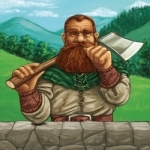
Glass Road
Games
App
Glass Road is the official digital version of Uwe Rosenberg's Glass Road board game. STORY: The...
Eilidh G Clark (177 KP) rated A Portable Shelter in Books
May 13, 2017
‘…there’s no other way to give you the truth except to hide it in a story and let you find your own way inside.’
‘…there’s no other way to give you the truth except to hide it in a story and let you find your own way inside.’
Kirsty Logan’s first collection of short stories, The Rental Heart and Other Fairytales, published by Salt in 2014, won the Polari First Book Prize in 2015. A Portable Shelter is her second collection. Set in a small cottage in the rural north coast of Scotland, Ruth and Liska are expecting their first child. The couple believe that their unborn baby will have a better chance of survival away from the harshness of suburban life. They make a pact with one another, that they will only ever tell their child the truth. Yet while Liska is asleep or Ruth is at work, each whispers secret stories to their unborn child. Delving into fantastical tales about people from their past and re-telling stories that span from generation to generation, the couple unfold the horrors of the real world. Whilst these tales, laced in myth and legend, and fattened with the magic of the imagination, demonstrate the art of oral storytelling, Logan reaches further to show the reader why storytelling is important.
While this book is primarily a collection of short stories, its novel like structure frames each story with a preceding monologue from either Ruth or Liska. The monologues offer delightful morsels of description that bring the harshness of Mother Nature into the safety of the couple’s bedroom, “right now our home is speaking to you. The walls creak their approval in the wind. The rain applauds on the roof. The lighthouse beam swoops, swoops, swoops. The tide breathes loud and slow like a giant. If you listen carefully, perhaps you can even hear the moon hum.” The pace of these sentences, combined with the delicacy of language demonstrates Logan’s skill at describing the sublime spirit of the natural world, which brings the narrative to life.
Most impressive though, is Logan’s poetic language and carefully crafted sentences which create the most beautiful imagery. In ‘Flinch,’ for example – James is a fisherman struggling with his identity, yet his affiliation with the land is locked into his first-person point of view where the reader gets to closely experience what he sees, “The sky is pinkish-grey like the insides of shells. Speckled bonxies wheel overhead. Seals loll on the rocks, fat as kings. The rising mist is cool and milky.” Any of these lines could easily be arranged into a poem and with sentences that are squeezed tight; they create a wonderful poetic rhythm. Logan uses this technique throughout her novel, demonstrating the precision and craft in her work. There are definite similarities in her writing style to fellow Scottish novelist and poet Jenni Fagan. Both authors use rich language, which is well crafted and smattered with vernacular. Furthermore, combining this with the reoccurring theme of identity, the oral storytelling tradition, landscape, folklore, and myth, it is clear to see why these authors contribute to the growing canon in Scottish literature.
This is a book that I will read over and over again because I know that in each reading, I will find something new. A Portable Shelter, I feel, deserves a place on my ‘keep’ book shelf.
A Portable Shelter, Kirsty Logan, London: Vintage, 2015
Kirsty Logan’s first collection of short stories, The Rental Heart and Other Fairytales, published by Salt in 2014, won the Polari First Book Prize in 2015. A Portable Shelter is her second collection. Set in a small cottage in the rural north coast of Scotland, Ruth and Liska are expecting their first child. The couple believe that their unborn baby will have a better chance of survival away from the harshness of suburban life. They make a pact with one another, that they will only ever tell their child the truth. Yet while Liska is asleep or Ruth is at work, each whispers secret stories to their unborn child. Delving into fantastical tales about people from their past and re-telling stories that span from generation to generation, the couple unfold the horrors of the real world. Whilst these tales, laced in myth and legend, and fattened with the magic of the imagination, demonstrate the art of oral storytelling, Logan reaches further to show the reader why storytelling is important.
While this book is primarily a collection of short stories, its novel like structure frames each story with a preceding monologue from either Ruth or Liska. The monologues offer delightful morsels of description that bring the harshness of Mother Nature into the safety of the couple’s bedroom, “right now our home is speaking to you. The walls creak their approval in the wind. The rain applauds on the roof. The lighthouse beam swoops, swoops, swoops. The tide breathes loud and slow like a giant. If you listen carefully, perhaps you can even hear the moon hum.” The pace of these sentences, combined with the delicacy of language demonstrates Logan’s skill at describing the sublime spirit of the natural world, which brings the narrative to life.
Most impressive though, is Logan’s poetic language and carefully crafted sentences which create the most beautiful imagery. In ‘Flinch,’ for example – James is a fisherman struggling with his identity, yet his affiliation with the land is locked into his first-person point of view where the reader gets to closely experience what he sees, “The sky is pinkish-grey like the insides of shells. Speckled bonxies wheel overhead. Seals loll on the rocks, fat as kings. The rising mist is cool and milky.” Any of these lines could easily be arranged into a poem and with sentences that are squeezed tight; they create a wonderful poetic rhythm. Logan uses this technique throughout her novel, demonstrating the precision and craft in her work. There are definite similarities in her writing style to fellow Scottish novelist and poet Jenni Fagan. Both authors use rich language, which is well crafted and smattered with vernacular. Furthermore, combining this with the reoccurring theme of identity, the oral storytelling tradition, landscape, folklore, and myth, it is clear to see why these authors contribute to the growing canon in Scottish literature.
This is a book that I will read over and over again because I know that in each reading, I will find something new. A Portable Shelter, I feel, deserves a place on my ‘keep’ book shelf.
A Portable Shelter, Kirsty Logan, London: Vintage, 2015
LilyLovesIndie (123 KP) rated A Tumble Through Time in Books
Nov 5, 2018
A Tumble Through Time is a wonderful frolic in the Wild West. When everything is going wrong for Anna, she suddenly finds herself in Kansas, 1870. A slow burning love for the town Marshal, Wes, develops and before you know it, it's love, but for how long?
I was provided a complimentary copy of this book by the author in return for an honest review, and I'm pretty certain Callie Hutton is going to be pretty pleased with it! But firstly, I must thank her for offering me this book to read as it was an absolute delight from start to finish.
Let's start with the plot, time travel meets romance, meets a bit of tragedy, meets a lovely ending. Hutton is spot on with her pace, plot development, writing style and story. It ambles at a lovely easy read pace, and has the feel of a book that you can easily slip in and out of, just like a pair of old jeans! But at times, the drama in the story picks up the pace and makes for irresistible reading. However, for me, the most important point to make is how familiar it feels when you return to the book after a short reading break (and believe me when I say short!) as it feels like you never put the book down. As someone who is frequently interrupted whilst reading, that's a really important thing for me.
Next, we have the characters. Anna and Wes are a delight to read, their love isn't cheesy or over the top, and the sex scenes are incredibly well written. The characters are believable and that makes it so easy to invest your emotions and time into reading about their lives, even if Anna is a bit of a 'modern woman', it's just lovely to see the contrast of times and upbringing completely demolished by their love for each other. In fact, if anything, it made me feel 'loved up' because I was bathed in their happy glow.
One of the final things I feel needs to be pointed out is how historically accurate the book is. This area of history is one of great interest to me, and I like my books to be accurate. Whether it's 'Indian Territory' or Kansas, it's clear how much effort has gone into researching this story, especially the accents. The dialects are fantastically well written, and it was easy to find yourself actually hearing the cowboys and little familiar ditties you've all heard in the classic Wild West movies, and it all adds to how believable the tale is, developing the atmosphere to such an extent you actually think you're there in Denton.
Finally, I suppose there's nothing else to say apart from go and get yourself a copy of this book. It's a delight from cover to cover, and I cannot honestly recommend it highly enough. If you like a bit of romance, a bit of action, a bit of time travel or even just something nice and easy to read sat by the poolside on your holiday then look no further. Callie Hutton is a fantastic and very talented author and I look forward to reading more of her work.
I was provided a complimentary copy of this book by the author in return for an honest review, and I'm pretty certain Callie Hutton is going to be pretty pleased with it! But firstly, I must thank her for offering me this book to read as it was an absolute delight from start to finish.
Let's start with the plot, time travel meets romance, meets a bit of tragedy, meets a lovely ending. Hutton is spot on with her pace, plot development, writing style and story. It ambles at a lovely easy read pace, and has the feel of a book that you can easily slip in and out of, just like a pair of old jeans! But at times, the drama in the story picks up the pace and makes for irresistible reading. However, for me, the most important point to make is how familiar it feels when you return to the book after a short reading break (and believe me when I say short!) as it feels like you never put the book down. As someone who is frequently interrupted whilst reading, that's a really important thing for me.
Next, we have the characters. Anna and Wes are a delight to read, their love isn't cheesy or over the top, and the sex scenes are incredibly well written. The characters are believable and that makes it so easy to invest your emotions and time into reading about their lives, even if Anna is a bit of a 'modern woman', it's just lovely to see the contrast of times and upbringing completely demolished by their love for each other. In fact, if anything, it made me feel 'loved up' because I was bathed in their happy glow.
One of the final things I feel needs to be pointed out is how historically accurate the book is. This area of history is one of great interest to me, and I like my books to be accurate. Whether it's 'Indian Territory' or Kansas, it's clear how much effort has gone into researching this story, especially the accents. The dialects are fantastically well written, and it was easy to find yourself actually hearing the cowboys and little familiar ditties you've all heard in the classic Wild West movies, and it all adds to how believable the tale is, developing the atmosphere to such an extent you actually think you're there in Denton.
Finally, I suppose there's nothing else to say apart from go and get yourself a copy of this book. It's a delight from cover to cover, and I cannot honestly recommend it highly enough. If you like a bit of romance, a bit of action, a bit of time travel or even just something nice and easy to read sat by the poolside on your holiday then look no further. Callie Hutton is a fantastic and very talented author and I look forward to reading more of her work.
LeftSideCut (3776 KP) rated Doctor Sleep (2019) in Movies
Nov 5, 2019 (Updated Nov 24, 2019)
Contains spoilers, click to show
Doctor Sleep certainly has some big footprints to follow. Nearly 40 years after the release of the hugely beloved The Shining, Director Mike Flanagan has the rather complicated task of adapting Stephen King's follow up sequel novel, whilst also attempting to deliver a solid follow up to Stanley Kubrick's original film. And he pulls it off pretty damn well.
The narrative follows a now adult Danny Torrance (Ewan McGregor), as he struggles with alcoholism. As he begins to put his life back together, he is thrown into a friendship with Abra Stone (Kyliegh Curran), a young girl who has similar powers to Danny, and who is being pursued by a cult who feed on the life force of those who possess 'The Shining'.
This new story is a really tight and fantastic thriller story in its own right. Flanagan takes a leaf from Kubrick's book and provides us with and unsettling atmosphere, complete with a Shining-esque creepy string music score, instead of relying on jump scares and other horror tropes.
It's effective, and engaging. A big part of this is down to the cast. Danny and Abra are both very likable protagonists.
The cult is lead by Rose the Hat, played by Rebecca Ferguson, who is both charming and sinister, and a big highlight of Doctor Sleep. Her and her followers fight for survival shows they will not even stop short of child sacrifice to get what they need, and it makes for a band of genuinely scary villains
The scenery is beautiful throughout, the the effects work on some of the more trippy scenes are decent, and the film toes the line in regards to relying on The Shining nostalgia too much, that is until the final act.
HUGE SPOILERS FOR DOCTOR SLEEP INCOMING
The last 30 minutes are undeniably fun, and a genuinely great climax, to a genuinely great film, but it does just about go overboard with it's 'look at this, remember this?' style of nostalgia. The sad thing is, it probably amounts to about 10 seconds of screentime that slightly sours the experience.
When Danny is at the bar, it's clear that he is talking to Jack before we even see the side of his face. His side profile is fine - absolutely no need to show his full face. Similarly a bit later, a recreated shot of Jack Torrance walking up the stairs towards his wife, didn't need to be there, nor did the shot of Rose the Hat seeing blood pouring from the elevator doors.
The film stops just short of having Ewan McGregor axe his way through a door panel thankfully, and it's only a small criticism of an otherwise nicely executed sequence.
Elsewhere tells a different story - The opening scene of The Shining is recreated, complete with the same iconic score, as overhead shots show us Danny driving up the mountain, towards the Overlook Hotel. It gave me goosebumps and the
scenes near the start of the film which follow directly on from The Shining are great, especially Carl Lumbly, who plays a spot on Mr. Hallorann.
END OF SPOILERS
All in all though, I thoroughly enjoyed Doctor Sleep. The Shining is not an easy shadow to step out from, but Mike Flanagan has created something here which stands on its own two feet.
It's dark, it's fun, it's unnerving, everything you could want from a horror in this day and age, and I genuinely can't wait to watch it again soon.
The narrative follows a now adult Danny Torrance (Ewan McGregor), as he struggles with alcoholism. As he begins to put his life back together, he is thrown into a friendship with Abra Stone (Kyliegh Curran), a young girl who has similar powers to Danny, and who is being pursued by a cult who feed on the life force of those who possess 'The Shining'.
This new story is a really tight and fantastic thriller story in its own right. Flanagan takes a leaf from Kubrick's book and provides us with and unsettling atmosphere, complete with a Shining-esque creepy string music score, instead of relying on jump scares and other horror tropes.
It's effective, and engaging. A big part of this is down to the cast. Danny and Abra are both very likable protagonists.
The cult is lead by Rose the Hat, played by Rebecca Ferguson, who is both charming and sinister, and a big highlight of Doctor Sleep. Her and her followers fight for survival shows they will not even stop short of child sacrifice to get what they need, and it makes for a band of genuinely scary villains
The scenery is beautiful throughout, the the effects work on some of the more trippy scenes are decent, and the film toes the line in regards to relying on The Shining nostalgia too much, that is until the final act.
HUGE SPOILERS FOR DOCTOR SLEEP INCOMING
The last 30 minutes are undeniably fun, and a genuinely great climax, to a genuinely great film, but it does just about go overboard with it's 'look at this, remember this?' style of nostalgia. The sad thing is, it probably amounts to about 10 seconds of screentime that slightly sours the experience.
When Danny is at the bar, it's clear that he is talking to Jack before we even see the side of his face. His side profile is fine - absolutely no need to show his full face. Similarly a bit later, a recreated shot of Jack Torrance walking up the stairs towards his wife, didn't need to be there, nor did the shot of Rose the Hat seeing blood pouring from the elevator doors.
The film stops just short of having Ewan McGregor axe his way through a door panel thankfully, and it's only a small criticism of an otherwise nicely executed sequence.
Elsewhere tells a different story - The opening scene of The Shining is recreated, complete with the same iconic score, as overhead shots show us Danny driving up the mountain, towards the Overlook Hotel. It gave me goosebumps and the
scenes near the start of the film which follow directly on from The Shining are great, especially Carl Lumbly, who plays a spot on Mr. Hallorann.
END OF SPOILERS
All in all though, I thoroughly enjoyed Doctor Sleep. The Shining is not an easy shadow to step out from, but Mike Flanagan has created something here which stands on its own two feet.
It's dark, it's fun, it's unnerving, everything you could want from a horror in this day and age, and I genuinely can't wait to watch it again soon.
The Bandersnatch (199 KP) rated The High Lord (Black Magician Trilogy, #3) in Books
Nov 7, 2019
Contains spoilers, click to show
Released in 2003 The High Lord is the penultimate ending to Sonea's story......starting a year after beating a bully in a fight. Sonea has received the respect she deserves but still faces the challenge of her guardian and the High Lord of the guild Akkarin. After being Surprised by Akkarin with a book on Black Magic Sonea is pulled into learning black magic and attempting to protect the city and the country from a group known as the Icani. After going through hell and being thrown out of the guild and being exiled the pair return and aid their fellow magicians in the attack......resulting in may magicians dead including Akkarin and Sonea pregnant with his child.
My opinion of this book was that of a decent conclusion to a good storyline. I do think however that the love storyline between Sonea and Akkarin is a little cliché. Otherwise It was a decent book. I have to admit the fighting between magicians would make a decent movie montage.
Born in Kew, Melbourne Australia on October 23rd 1969 Trudi Canavan spent her formative years being extremely creative in the suburb of Ferntree Gully. Canavan decided to become a professional artist and went to the Melbourne college of Decoration achieving an advanced certificate in promotional display as well as an award for the highest aggregate mark in art subjects in 1988.
During the early 1990's Canavan worked for the Australian magazine Aurealis (a magazine for Australian science-fiction and fantasy work) as well as starting her own business The Telltale art which specialised in graphical design services. By working for Aurealis Canavan was able to write in her spare time.
In 1999 Canavan managed to win the Aurealis award for best fantasy short story with whispers of the mist children and cementing her work further with the release of the Magicians Guild in 2001 (book one of The Black Magician trilogy) the successive books The Novice (2002) and The Black Magician (2003) brought Canavan both widespread acclaim and nominations for both the Aurealis best Fantasy novel and Best Novel Ditmar Category. All three books ended up in the top ten Science Fiction books for Australia.
Canavan's second Trilogy Age of Five was also well received with the first book reaching No3 in the Sunday Times hardback fiction best sellers list and staying in the top ten for six weeks. Canavan went on to write a prequel/sequel to the black magician trilogy known as the magicians apprentice in 2009 this was followed by the traitor spy trilogy which was released between 2010 and 2012. Trudi Canavan now holds a vast array of written works under her belt which can be split into three book series and a group of short stories.
My opinion of Trudi Canavan is that she is a very dedicated writer. Excellent with detail and writing a strong character and story. I definitely respect her work ethic since she is both a writer and a graphic designer. I definitely would love to talk with her and have a discussion about books and writing in general. She is up there with Prof J. R. R. Tolkien, George R. R. Martin and Lewis Carroll in my books.
And there you have it a book for all the ages, definitely under the banner of Quality reading, I am positive this trilogy could end up being the NEXT it thing if they were ever made into a Movie Trilogy.
My opinion of this book was that of a decent conclusion to a good storyline. I do think however that the love storyline between Sonea and Akkarin is a little cliché. Otherwise It was a decent book. I have to admit the fighting between magicians would make a decent movie montage.
Born in Kew, Melbourne Australia on October 23rd 1969 Trudi Canavan spent her formative years being extremely creative in the suburb of Ferntree Gully. Canavan decided to become a professional artist and went to the Melbourne college of Decoration achieving an advanced certificate in promotional display as well as an award for the highest aggregate mark in art subjects in 1988.
During the early 1990's Canavan worked for the Australian magazine Aurealis (a magazine for Australian science-fiction and fantasy work) as well as starting her own business The Telltale art which specialised in graphical design services. By working for Aurealis Canavan was able to write in her spare time.
In 1999 Canavan managed to win the Aurealis award for best fantasy short story with whispers of the mist children and cementing her work further with the release of the Magicians Guild in 2001 (book one of The Black Magician trilogy) the successive books The Novice (2002) and The Black Magician (2003) brought Canavan both widespread acclaim and nominations for both the Aurealis best Fantasy novel and Best Novel Ditmar Category. All three books ended up in the top ten Science Fiction books for Australia.
Canavan's second Trilogy Age of Five was also well received with the first book reaching No3 in the Sunday Times hardback fiction best sellers list and staying in the top ten for six weeks. Canavan went on to write a prequel/sequel to the black magician trilogy known as the magicians apprentice in 2009 this was followed by the traitor spy trilogy which was released between 2010 and 2012. Trudi Canavan now holds a vast array of written works under her belt which can be split into three book series and a group of short stories.
My opinion of Trudi Canavan is that she is a very dedicated writer. Excellent with detail and writing a strong character and story. I definitely respect her work ethic since she is both a writer and a graphic designer. I definitely would love to talk with her and have a discussion about books and writing in general. She is up there with Prof J. R. R. Tolkien, George R. R. Martin and Lewis Carroll in my books.
And there you have it a book for all the ages, definitely under the banner of Quality reading, I am positive this trilogy could end up being the NEXT it thing if they were ever made into a Movie Trilogy.
